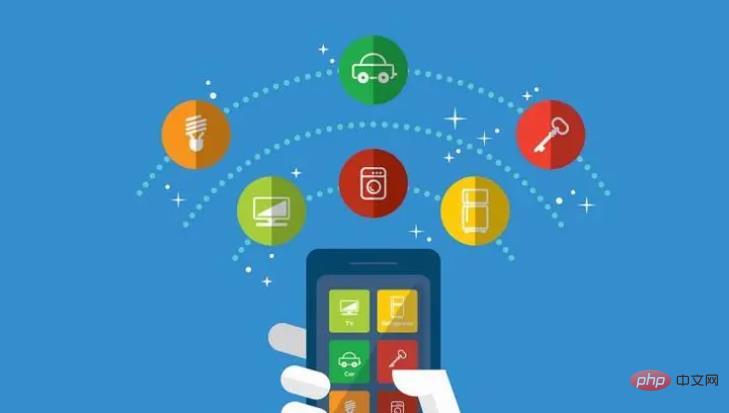
Mobile terminal refers to a computer device that can be used on the move. Broadly speaking, it includes mobile phones, notebooks, tablets, POS machines and even vehicle-mounted computers; but in most cases it refers to mobile phones or has multiple application functions. smartphones and tablets.

The operating environment of this tutorial: Windows 7 system, Dell G3 computer.
What does mobile terminal mean?
Mobile terminals or mobile communication terminals refer to computer equipment that can be used on the move. Broadly speaking, it includes mobile phones, notebooks, tablets, POS machines and even vehicle-mounted computers. But in most cases it refers to mobile phones or smartphones and tablets with multiple application functions. As networks and technologies develop in an increasingly broadband direction, the mobile communications industry will move towards a true mobile information era. On the other hand, with the rapid development of integrated circuit technology, the processing capabilities of mobile terminals have become powerful, and mobile terminals are changing from simple communication tools to a comprehensive information processing platform. This also adds a broader development space to mobile terminals.
As a simple communication device, mobile terminals have been accompanying the development of mobile communications for decades. Since 2007, intelligence has triggered genetic mutations in mobile terminals, fundamentally changing the traditional positioning of terminals as the end of mobile networks. Mobile smart terminals transformed almost instantly into the key entrance and main innovation platform for Internet business, a new media, e-commerce and information service platform, and the most important hub for Internet resources, mobile network resources and environmental interaction resources. Its operating system and processing system Device chips have even become the strategic commanding heights of the entire ICT industry today. The disruptive changes caused by mobile intelligent terminals have opened the prelude to the development of the mobile Internet industry and opened a new technology industry cycle. With the continuous development of mobile smart terminals, their influence will be comparable to that of radio, television and the Internet (PC), becoming the fourth terminal product in human history that has widespread penetration, rapid popularity, huge influence, and penetrates into all aspects of human social life.

Mobile terminals, especially smart mobile terminals, have the following characteristics.
(1) In terms of hardware system, mobile terminals have central processing units, memories, input components, and output components. In other words, mobile terminals are often microcomputer devices with communication functions. In addition, the mobile terminal can have multiple input methods, such as keyboard, mouse, touch screen, microphone, camera, etc., and the input can be adjusted as needed. At the same time, mobile terminals often have multiple output methods, such as receivers, display screens, etc., which can also be adjusted as needed.
(2) In terms of software system, mobile terminals must have operating systems, such as Windows Mobile, Symbian, Palm, Android, iOS, etc. At the same time, these operating systems are becoming more and more open, and personalized application software developed based on these open operating system platforms is emerging in an endless stream, such as address books, schedules, notepads, calculators, and various games, etc., which greatly satisfy individual needs. ize users’ needs.
(3) In terms of communication capabilities, mobile terminals have flexible access methods and high-bandwidth communication performance, and can automatically adjust the selected communication method according to the selected business and the environment, thereby User-friendly. Mobile terminals can support GSM, WCDMA, CDMA2000, TDSCDMA, Wi-Fi and WiMAX, etc., thereby adapting to multiple standard networks, supporting not only voice services, but also multiple wireless data services.
(4) In terms of function use, mobile terminals pay more attention to humanization, personalization and multi-function. With the development of computer technology, mobile terminals have moved from a "device-centered" model to a "people-centered" model, integrating embedded computing, control technology, artificial intelligence technology, and biometric authentication technology, fully embodying the people-centered approach. purpose. Due to the development of software technology, mobile terminals can adjust settings according to personal needs and become more personalized. At the same time, the mobile terminal itself integrates many software and hardware, and its functions are becoming more and more powerful.
For more related knowledge, please visit the FAQ column!
The above is the detailed content of What does mobile terminal mean?. For more information, please follow other related articles on the PHP Chinese website!




